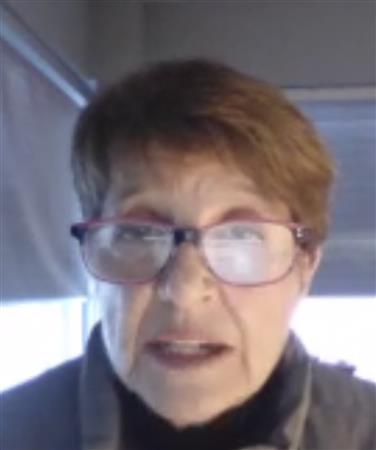
Marion Emo from the Hamilton Burlington SPCA is the interim CEO, having retired from the organization in 2020. After 20 years in human health, Marion has spent the last decade in animal welfare. There are similarities in the issues facing each sector: accessibility, affordability, and safety. Marion has a Rotary connection too! She was a member of the D7090 GSE team to Japan.
Marion spoke to us about the challenges of sustaining service to the community in times of COVID.
The history of animal welfare in Canada is a long one—the SPCA will be 135 years old this April. The primary goals of the agency now are to provide preventative care and wellness clinics for animals. Shelter is a last resort, and although they still work on socialization of pets for adoption, that has become a less important part of the business. Spaying and neutering is, however, important as these operations allow for better lives for pets at home.
Marion’s professional experience and personal foresight has come in handy during COVID. In January 2020, she was returning from a trip to Iceland when she was counselled by an airline pilot that things were “a changing’”. And, of course, as we now know by mid-March 2020 our lives were upended. However, in February 2020 at the HBSPCA, Marion completed an inventory of supplies that included securing a 3 month supply of PPE for all staff. A career in healthcare had taught her to always have long term plans.
Marion understood that lesson#1 is “Anticipate, anticipate, anticipate”. She had worked during Ebola and SARS outbreaks and understood that viruses know no boundaries. She knew that we must make no assumptions and that creative, lateral thinking would be needed to deal with the challenge of COVID.
The second lesson Marion had learned from all her experience was to “find your experts”. In the animal welfare world, as in human healthcare, there were differing and conflicting opinions and advice in large part because COVID19 was a new virus.For animals, one of the areas of conflict was around surgery. Should HBSPCA continue neutering and spaying? Marion selected her experts: Drs. Scott Weese and Maureen Anderson from University of Guelph Veterinary College; the Ontario Science Advisory Table; and the Federal Public Health department. To this day, she sticks with their advice and doesn’t get derailed.
Her takeaway lesson #3 was to trust in your team and its capacity to be creative, thoughtful and resourceful. She is immensely proud of the HBSPCA’s ability to adapt, to provide safe emergency end of life, and safe spaying and neutering of street cats during the pandemic. Her team also piloted virtual adoption procedures so that pets may be adopted safely. This innovation Marion believes will last long after COVID. And in an aside, Marion told us that vets and RVT’s have now begun virtual medicine on a limited basis as well. Clearly COVID has led to innovative practices.
Marion’s 4th lesson from the pandemic was “Communicate, communicate, communicate”. The organization sent uplifting and informative weekly e-newsletters to their donors and supporters. Their goal was to share their stories of service, of inspiration and of creativity in responding to the virus. Amazingly, their donations have remained high throughout these past two years.
The final lesson Marion wished to share with us was that it was important to take care of your people in the organization. HBSPAC followed strict, consistent PPE protocols, imposed restrictions on workplace zones and required mandatory vaccinations. They rigorously tested the air quality, opened the doors 3x/day, and purchased rapid testing kits so that people could be tested every day.
Marion believes these practices allowed staff to feel confident about their health and safety which in turn allowed them to be able to focus on using all their skills at work. Marion’s lessons from COVID are not just applicable to her organization: these are life lessons.